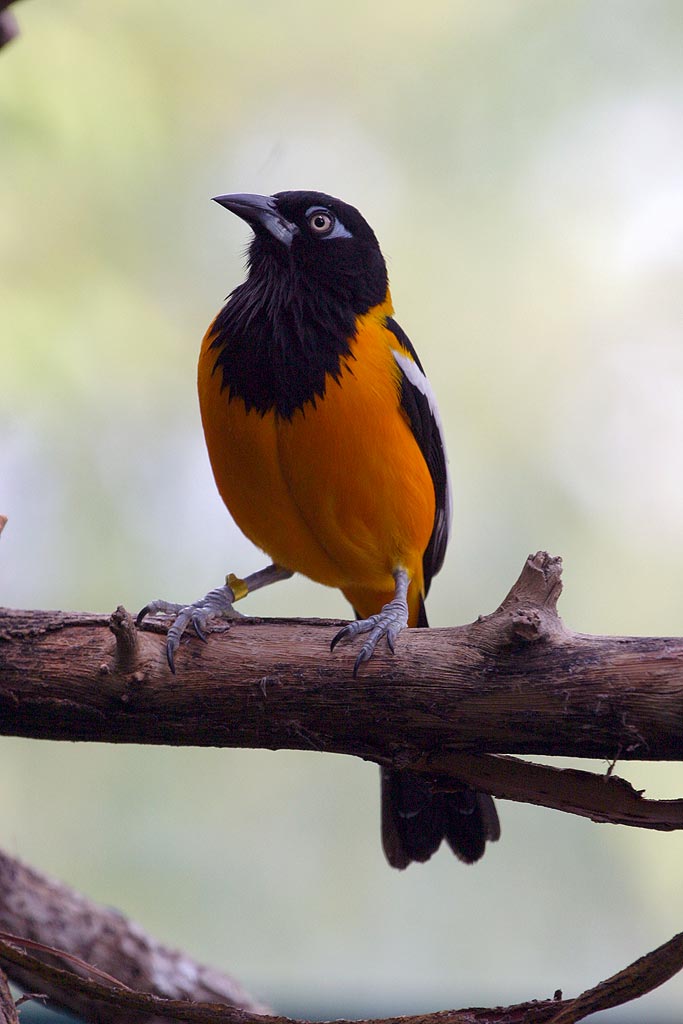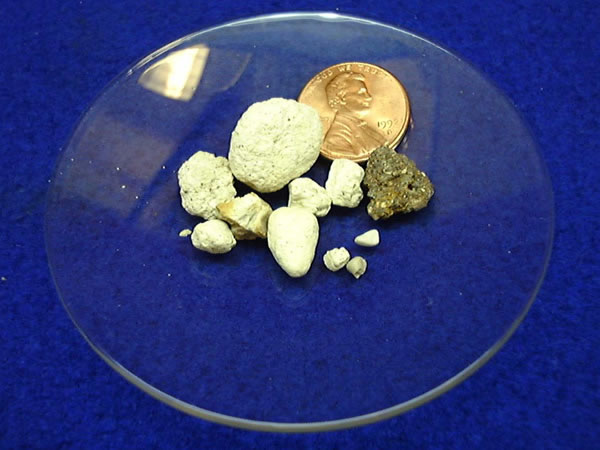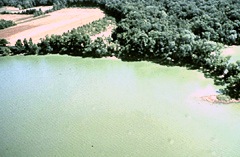Venezuela is very mixed, as we have often mentioned, but: how mixed is it precisely? What differences are there exactly across social groups?
Population geneticists help to investigate how homo sapiens expanded from Africa to settle the whole world and how different groups intermingled. One of the main sources they have are non-recombining pieces of DNA. These are genetic markers we all get from one side of our ancestors only. Most of the DNA information in our cells are a "random" mixture of both parents' genes: it is not possible to know but some parts get transmitted almost unchanged from father to sons across many generations or from mother to daughters and sons. They are patterns that are recognizable after thousands of years. Only from time to time there are minor mutations and those mutations help us see how different branches of mankind appeared.
The markers on the males' side are patterns of DNA-bases found in the Y chromosomes. I have the same sequences as my dad but for very minor variations. The markers on the female sie are DNA bases found in our mitochondria, little structures we all have in all our cells and which we get exclusively from our mothers. We all have the spitting image of our mother's mitochondria.
As populations in previous times stayed put in some places and did not mingle randomly with others, geneticists have been able to find haplogroups that are shared by all common ancestors of an individual many years ago. Things get much more complicated than that, but basically, with those haplogroups we can track down a whole line, either on the paternal side or on the maternal side of each man and on the maternal side of every woman on Earth.

Like your mother

The Y: like dad's
Sub-Saharan Africans, Europeans, Asians and native Americans have particular haplogroups. If you see a "sub-Saharan" male haplogroup in an European, this means that the father of the father of the father...of that European (a male as only males have Y chromosomes, unless we are talking about very unusual cases) came from sub-Saharan Africa in recent history. The same goes on the female side.
I am Venezuelan and as I wrote in previous posts, I have the usual admixture. My paternal haplogroup appeared in the Fertile crescent around 18000 years ago and it is present in lots of Lebanese, Iraqis, Syrians, Turks, Armenians, Greeks, Southern Italians, Jews and to a lesser extent Spaniards. I got it from there. My mother's haplogroup is sub-Saharan and most likely a female ancestor of mine was a slave brought to Venezuela between 1528 and 1810 (it could have come indirectly through Spain as 1-3% of Spaniards also have sub-Saharan female haplogroups, but that is less likely). That lady was from West Africa. That is only part of my background. As my family has been in Venezuela for a long time, it is almost certain there is native American blood there as well and from other parts of Europe (two of them I know) and Africa. One has 2 parents, 4 grandparents, 8 great-grandparents and 2 times n ancestors n generations ago.
Now back to the study carried out by Rodríguez-Larrade. The blood samples were from 50 and 60 individuals who were in a public and a private maternity respectively.
The results for male haplogroup origin in the public maternity (where the dad of the dad of the dad of the dad...of the males came from) showed this:

The results for male haplogroup in the private maternity showed this:

A lot of the people in public hospitals are people from families who came from the countryside to the capital in the last 50 years. About 40% of the grandparents of the people in the private clinic were born in Europe. As the study says, "Many of these migrants, mostly Spaniards, Italians, and Portuguese, helped to develop economic activities related to commerce and construction, activities that rapidly introduced them to the high socioeconomic level. On the other hand, most of those individuals at the low socioeconomic level are a consequence of rural-urban internal migration; they seem to be more representative of the traditional Venezuelan population. This reveals that the identification of the grandparents' geographic origin is an important methodological aspect to take into account in genetic studies related to the reconstruction of historical events."Population geneticists help to investigate how homo sapiens expanded from Africa to settle the whole world and how different groups intermingled. One of the main sources they have are non-recombining pieces of DNA. These are genetic markers we all get from one side of our ancestors only. Most of the DNA information in our cells are a "random" mixture of both parents' genes: it is not possible to know but some parts get transmitted almost unchanged from father to sons across many generations or from mother to daughters and sons. They are patterns that are recognizable after thousands of years. Only from time to time there are minor mutations and those mutations help us see how different branches of mankind appeared.
The markers on the males' side are patterns of DNA-bases found in the Y chromosomes. I have the same sequences as my dad but for very minor variations. The markers on the female sie are DNA bases found in our mitochondria, little structures we all have in all our cells and which we get exclusively from our mothers. We all have the spitting image of our mother's mitochondria.
As populations in previous times stayed put in some places and did not mingle randomly with others, geneticists have been able to find haplogroups that are shared by all common ancestors of an individual many years ago. Things get much more complicated than that, but basically, with those haplogroups we can track down a whole line, either on the paternal side or on the maternal side of each man and on the maternal side of every woman on Earth.

Like your mother

The Y: like dad's
Sub-Saharan Africans, Europeans, Asians and native Americans have particular haplogroups. If you see a "sub-Saharan" male haplogroup in an European, this means that the father of the father of the father...of that European (a male as only males have Y chromosomes, unless we are talking about very unusual cases) came from sub-Saharan Africa in recent history. The same goes on the female side.
I am Venezuelan and as I wrote in previous posts, I have the usual admixture. My paternal haplogroup appeared in the Fertile crescent around 18000 years ago and it is present in lots of Lebanese, Iraqis, Syrians, Turks, Armenians, Greeks, Southern Italians, Jews and to a lesser extent Spaniards. I got it from there. My mother's haplogroup is sub-Saharan and most likely a female ancestor of mine was a slave brought to Venezuela between 1528 and 1810 (it could have come indirectly through Spain as 1-3% of Spaniards also have sub-Saharan female haplogroups, but that is less likely). That lady was from West Africa. That is only part of my background. As my family has been in Venezuela for a long time, it is almost certain there is native American blood there as well and from other parts of Europe (two of them I know) and Africa. One has 2 parents, 4 grandparents, 8 great-grandparents and 2 times n ancestors n generations ago.
Now back to the study carried out by Rodríguez-Larrade. The blood samples were from 50 and 60 individuals who were in a public and a private maternity respectively.
The results for male haplogroup origin in the public maternity (where the dad of the dad of the dad of the dad...of the males came from) showed this:

The results for male haplogroup in the private maternity showed this:

Still, in both cases we see the European component on the male side is the dominant by far. Male Indians were killed or outbred in previous centuries, whereas the conqueror or richer settler reproduced more, as all around the world.
On the background we got from our mothers, we have a completely different picture. The background in the public maternity looked like this:

The genetic background on the female side in the private clinic looked like t his:

Let's hope in the future there won't be such differences and our public hospitals become as good as those in Northern Europe. Let's hope any background differences between public and private clinics disappear.
In any case, we sum up saying Venezuelans are, genetically speaking, mostly European on the paternal side and mostly native American on the maternal side, with a sub-Saharan component on both sides (as my maternal haplogroup shows) but any mixture is part of Venezuela and most Venezuelans have a bit of recent background from every continent. There are obvious ethnic differences, although smaller than elsewhere: the poor of the present tend to be descendants of the poor of yore, who tended to be more descendants of Indians and slaves, although it is a matter of some degrees. There has been a lot of mobility in Venezuela for many decades now, probably more than in many other places, although not as we would want. The main reason is the little support given to the quality of education of the poorest, something that hasn't changed.
The cool thing is that a Venezuelan of German or Lebanese, Japanese or Peruvian parents is just that: a Venezuelan with foreign parents, but a Venezuelan 100%. She is also going to eat her arepas and cachapas, she will have the same Venezuelan music, use the Latin American Spanish adorned with those Indian, African and Italian words
Genetics can take us further and teach us more about the history of Venezuela. We will write about this in future posts. But it does not take genetics for us to know we need better education for the poor. This will help us reduce all kinds of social differences and get us on the road to sustainable development.





























